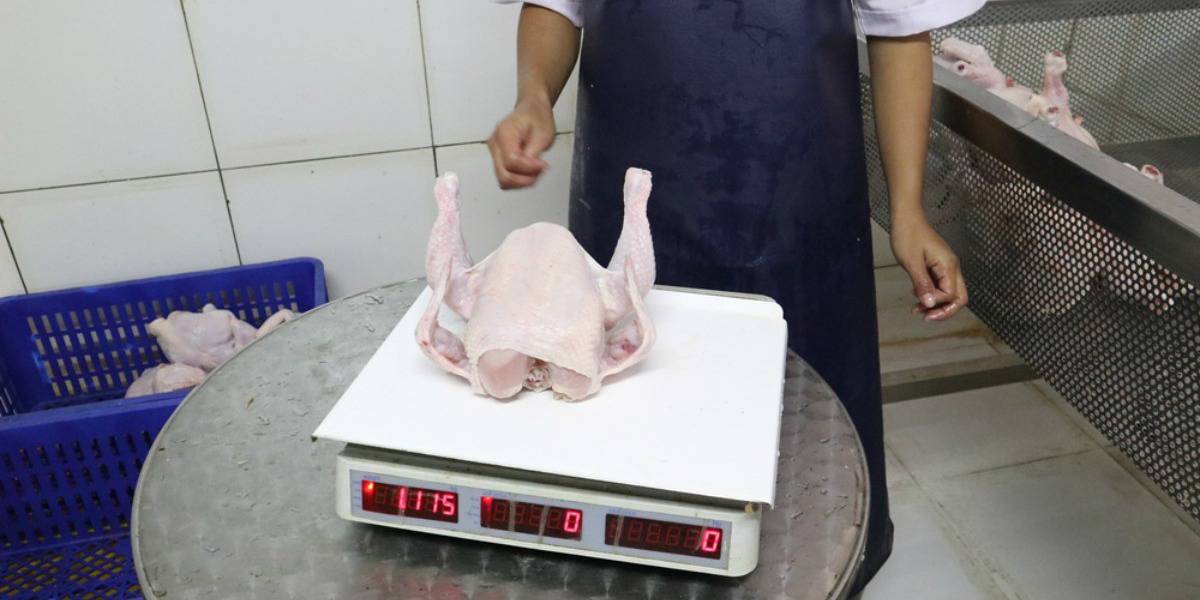Indonesian halal poultry producer Sierad using blockchain to gain consumer trust and global competitiveness
JAKARTA – One of Indonesia’s largest integrated poultry companies, PT Sierad Produce Tbk, is adopting blockchain technology to increase customer trust and improve its competitiveness in the global market, Dicky Saelan, Managing Director of PT Belfoods Indonesia, a company under Sierad Produce, told Salaam Gateway.
Sierad Produce will use blockchain from agritech start-up HARA Token that last year worked with the central bank to launch the INFRATANI program that digitizes agricultural data to allow farmers, processors and buyers to trace information throughout the halal value chain.
Sierad Produce, which is listed on the Jakarta Stock Exchange, sees a big growth potential in Indonesia, where broiler chicken consumption is only 5 kilograms per capita, compared to neighboring countries such as Malaysia where it is 40 kilograms per capita. Almost every Indonesian eats chicken, compared to other protein sources such as beef, which is considered a holy animal in some religions, and pork that is shunned by Muslims.
“In Indonesia, it is estimated that halal F&B (today) is worth $170 billion,” said Dicky.
In the global market, he sees the growing demand for halal F&B being fed by non-Muslim majority countries such as Brazil. “Indonesian companies like us have the chance to lead the industry by utilizing advanced technology, specifically blockchain,” he added.
Dicky believes blockchain technology is the key to be competitive in the local and global market, rather than competing solely on price. The technology will also help differentiate Sierad Produce from bigger competitors such as Charon Pokphand.
By using blockchain, the company can provide transparency for its whole value chain, said Dicky. Customers can trace every stage of production through tracker apps by scanning the QR Code found in the product packs.
“Currently we are focusing on blockchain implementation for our (business) customers that require high halal standards to produce and supply frozen food products like nuggets, meatballs and sausages to modern retail, as well as certain global markets we have already entered, such as Japan. Post COVID-19, we will also focus on the end-consumers with broilers through vegetables vendors,” he added, referring to the vendors at traditional markets that sell cheaper broiler chickens.
Blockchain technology is complex for day-to-day operations, said Dicky. For example, one broiler needs at least 30 points to be connected to be able to monitor and trace its whole production process. What makes it more challenging is that not all parties, such as breeders or fast food restaurants, are equipped with the QR Code scanner or Internet of Things (IoT) tools. The current system only represents around two thirds of the whole broiler industry.
“Given this technology is quite new for this industry, we still need more user-friendly interfaces or modules because not everyone in the backend can read the data and we with our partner HARA Token are improving it,” said Dicky.
“The most important thing is that we send the message to customers and consumers that we are ready to be as transparent as possible. Amidst the COVID-19 pandemic, concerns about health and halal matters are rising. People want to make sure the broiler is slaughtered with a certified team, that they are using masks, they have halal certification, and so on. Blockchain is the answer for all these questions,” he added.
Dicky estimates the investment on the blockchain can be recovered in less than five years, and the company hopes to benefit as a first mover to generate more revenue growth.
In 2019, Sierad Produce’s revenue grew 17.7% to 472 billion rupiah ($33 million), from 401 billion rupiah in 2018.It contributed around 11.5% of total holding (Sierad Produce Tbk) revenue of 4,105 billion rupiah.
Dicky said he expects to increase Belfoods’ contirbution to 45% of Sierad Produce’s revenue in the next two years. Belfoods runs four business lines: nuggets, meatballs, sausages, and steam buns.
(Reporting by Yosi Winosa; Editing by Emmy Abdul Alim emmy.abdulalim@salaamgateway.com)
© SalaamGateway.com 2020 All Rights Reserved

